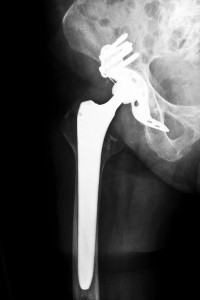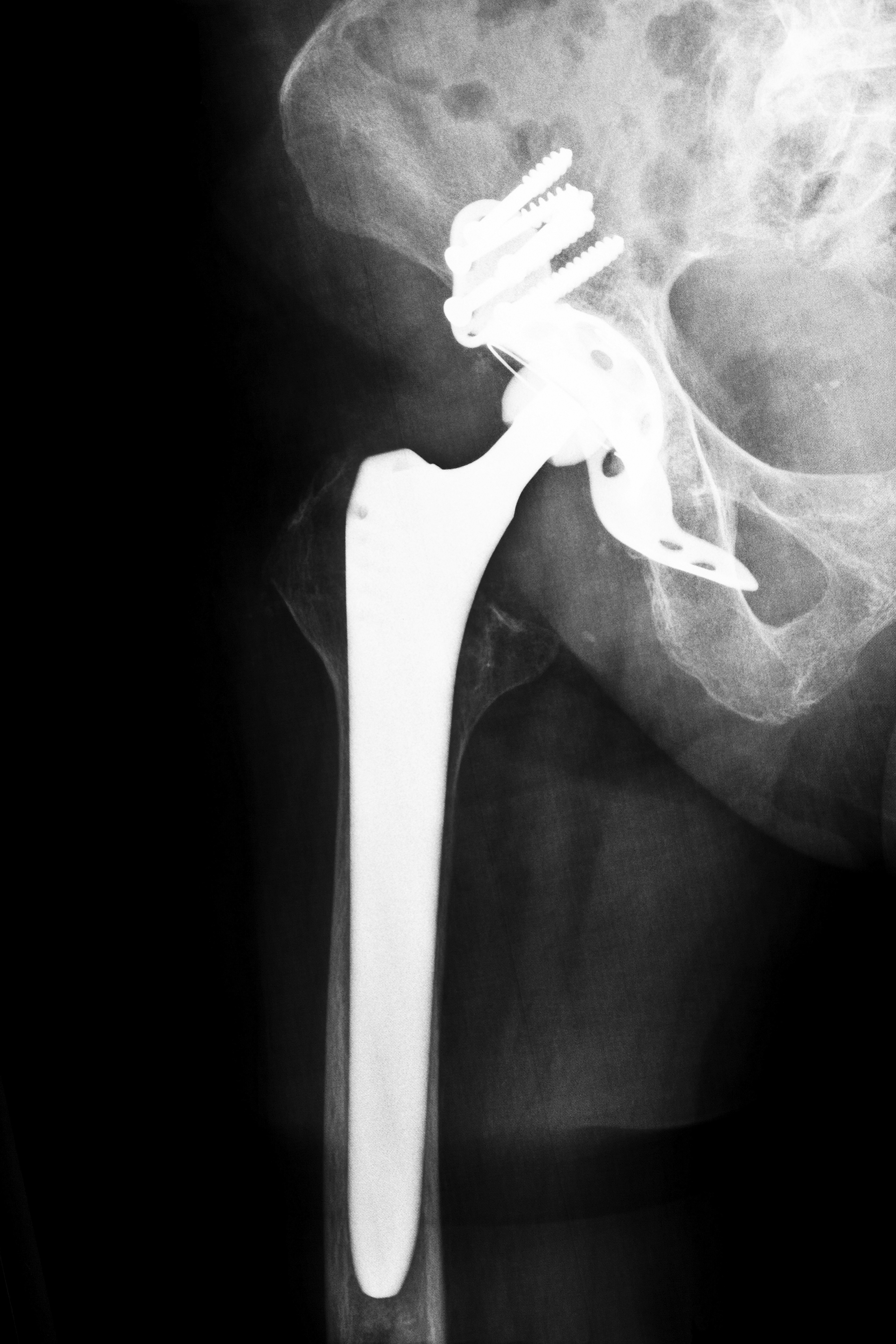Louisiana Smith and Nephew R-3 Recall Attorneys
If you or a loved one have had hip replacement surgery, you know how much difference it can make in your daily life. Unfortunately, one type of hip implant, the Smith & Nephew R3, has caused health problems in some recipients. If your implant is troubling you, one of the Louisiana Smith and Nephew R-3 recall attorneys affiliated with Attorney Group for Louisiana may be able to help.
The Development of the Hip Replacement
The first metallic replacement hip was implanted in Columbia, South Carolina in 1940. Although there were some successful experiments with materials like ivory, the design that eventually became predominant involved a metal stem cemented into the hollow of the thigh bone with a knob on the upper end, and a cup called an acetabulum cemented into the hip bone. The knob fits into the cup and together the two pieces perform the function of the original hip joint.
In modern practice both the stem and the cup come in two parts. The acetabulum has a liner, and a separate knob is attached to the femoral implant. Originally the liners were of polyethylene, and many still are and still give good service. Sometimes, though, the polyethylene wore out, so medical device companies looked for an alternative. One of the new types of hip technology was a metal-on-metal hip, meant to wear more slowly than earlier designs. The Smith and Nephew R3 is one of these metal-on-metal hip implants that Louisiana Smith and Nephew R-3 recall attorneys know all too well.
The Smith and Nephew R3 Recall
The R3 acetabular cup was designed for difficult hip surgery cases. It came with interchangeable liners to accommodate large heads, and was meant to reduce wear and therefore decrease the need for repeated surgeries. Unfortunately the metal cup was susceptible to wear and corrosion by bodily fluids, and the particulate debris it released caused adverse reactions in some patients. In February of 2011, the Food and Drug Administration issued an advisory about metal-on-metal hips, and in 2012 Smith and Nephew voluntarily recalled the liner portion of the R3. Since that time, Louisiana Smith and Nephew R-3 recall attorneys have been helping patients with adverse reactions to the device.
Health problems with the Smith & Nephew R3
Symptoms of problems with a metal-on-metal hip implant begin with pain. The device is supposed to relieve hip pain and make it easier to perform daily activities. If, after a brief healing period, the pain is still there, returns, or has worsened, something is wrong. Limps can also be symptomatic. The implant area can become infected, can loosen, and, in the worst cases, the adjacent bones can fracture. Louisiana Smith and Nephew R-3 recall attorneys can seek compensation for all of the aforementioned injuries.
The more dangerous symptoms are those that seem to have nothing to do with the hip. Once the metal particles get into the bloodstream, they can travel to any part of the body and cause autoimmune problems or an allergic reaction ranging from hives and inflammation to bleeding. In addition, soft tissue necrosis can occur around the hip joint and may lead to the formation of pseudotumors.
Some authorities have recommended that patients with metal-on-metal implants be monitored with blood tests for ion levels and imaging of the affected area. Smith and Nephew themselves only advise that physicians continue their normal follow-up procedures for patients with the device.
What To Do If You Have an R3 Implant
 First of all, do not panic. Many of the implants work properly for the whole of their design life. Second, speak to your doctor. You should already be participating in the normal regimen of follow-up care for all hip patients. Ask if there is anything else that you need to be doing to deal with the possible danger from your R3 hip replacement.
First of all, do not panic. Many of the implants work properly for the whole of their design life. Second, speak to your doctor. You should already be participating in the normal regimen of follow-up care for all hip patients. Ask if there is anything else that you need to be doing to deal with the possible danger from your R3 hip replacement.
If the patient has symptoms that might be associated with a reaction to metal-on-metal implants, you may want to consider a third option: contacting Louisiana Smith and Nephew R-3 recall attorneys via Attorney Group for Louisiana for a free consultation, and to be informed of your rights. Remember that once the toxic metals from the implant are in the bloodstream, they can cause reactions that seem to have nothing to do with the hip. Headaches, dizziness, digestive problems and even mood disorders can be due to metal toxicity from the implant.
If you or someone you love have a metal-on-metal Smith and Nephew R3 implant, you should immediately speak with your doctor about any symptoms. Go first to the physician who handled your case during your surgery, who may or may not be the surgeon himself. If you feel that the possibility of implant problems are not being taken seriously, get a second opinion from a different doctor and see a lawyer to discuss the possibility that you may be entitled to compensation. Louisiana Smith and Nephew R-3 recall attorneys affiliated with Attorney Group for Louisiana can help you to evaluate your case. Contact us today.






